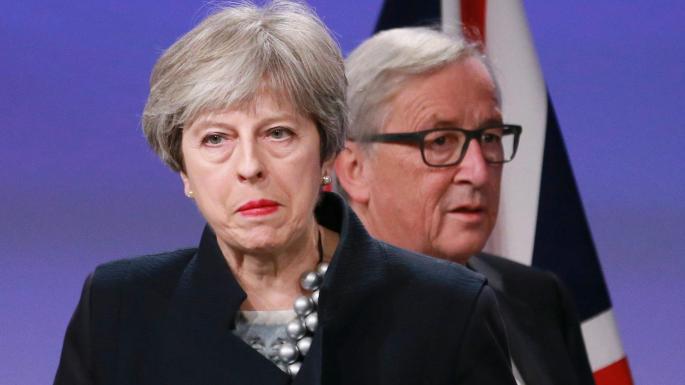May threatens EU over deal
December 16, 2018 | Expert Insights

The British PM threatened to crash the Brexit deal crafted by the UK and EU over the past two years. She will not accept the deal unless fellow European leaders agreed to discuss changes to the withdrawal package to help her convince the British Parliament.
Background
On June 23rd, 2016, Britain narrowly voted to leave the European Union, stunning Europe and the world in general. The EU employs a set of policies for its 28-member states that aim to ensure the free movement of people, goods and trade among other services. Britain is deeply intertwined with the workings of the EU especially with regard to trade.
PM Theresa May’s leadership in the negotiations has been heavily criticised. She has been unable to form a consensus within the Parliament, or even her own party, for the course of Brexit. Her “directionless” leadership has not convinced most of her peers in Westminster and she was challenged by a no-confidence motion in early December 2018, which she narrowly won.
Despite her best efforts, the British parliament is not accepting the proposed Brexit agreement. Irrespective of whether they arrive on a deal or not, the UK is officially set to leave in March 2019.
Analysis
In a confrontation with the EU’s high command on the margins of a European Council meeting in Brussels, the UK prime minister said if she could not win any more concessions she might as well hold a snap vote by parliament on her Brexit deal next week.
Given that Mrs. May aborted a House of Commons vote on her deal this week because she feared defeat by a “significant margin”, her comments amounted to a threat that she would let MPs kill the withdrawal agreement before Christmas.
Mrs. May made the threat to German Chancellor Angela Merkel, French president Emmanuel Macron and EU presidents Jean-Claude Juncker and Donald Tusk as the two-day Brussels summit descended into acrimony, according to diplomats.
Leo Varadkar, the Irish premier, warned that the EU could not tolerate a treaty approval process where a country “comes back every couple of weeks following discussions with their parliament looking for something extra . . . you can’t operate international relations on this basis.”
Senior EU officials are resisting further negotiations — and suggestions of a special Brexit summit next month — because they see Britain’s requests as in effect a bid to rewrite the exit treaty.
Mr. Varadkar noted that many prime ministers had been called to Brussels “at short notice” for a special Brexit summit “on a Sunday in November”, adding: “I don’t think they would be willing to come to Brussels again unless we really have to.” Mr. Tusk said as European Council president he would always be “at Mrs. May’s disposal” to discuss Brexit. But he added he had “no mandate to organise further negotiations”.
Television cameras on Friday captured Mrs. May angrily accosting Mr. Juncker, head of the European Commission, who had described as “nebulous” the discussions around Mrs. May’s plan for “clarifications” to the so-called Irish backstop in the Brexit deal.
The backstop is meant to avoid a hard border between Northern Ireland and the Irish Republic. However, since the arrangement would create a UK-wide customs union with the EU, Eurosceptic Tories fear it could bind Britain into close ties with the EU in perpetuity.
Mrs. May had been urged by Conservative Brexiters to “wield the handbag” at the Brussels summit This was a reference to the robust diplomatic style of her Conservative predecessor Margaret Thatcher. She pleaded with European leaders to help her win “legal and political” clarifications to show her critics at Westminster that the Irish backstop would be temporary.
Assessment
Our assessment is that the EU is not willing to renegotiation on the proposed exit deal as EU countries stand to gain from it more than the UK. We believe that PM May is now fighting not only for a fair Brexit deal but also for her own political survival. We also feel that the rising disagreements within the Conservative Party may lead to a new Brexit Referendum, an idea which is supported by most members of the House of Commons.








Comments